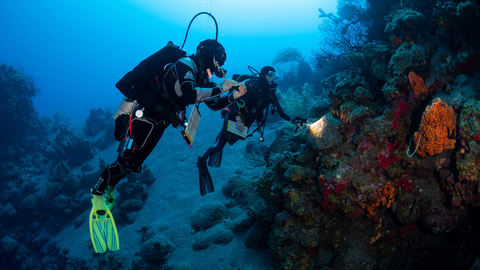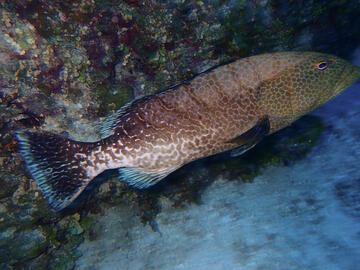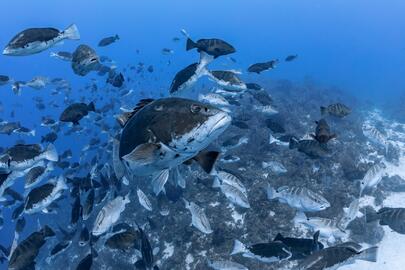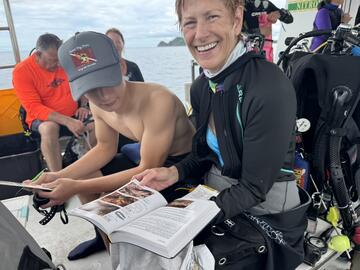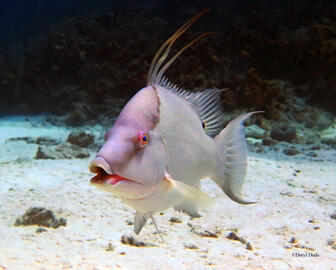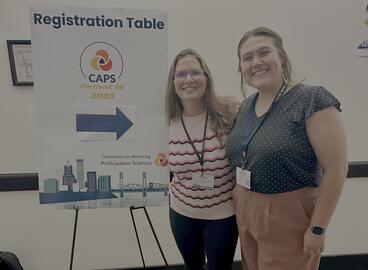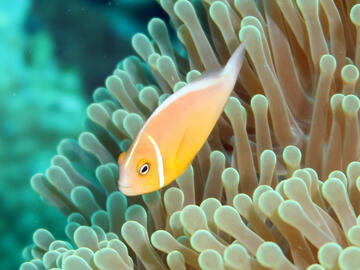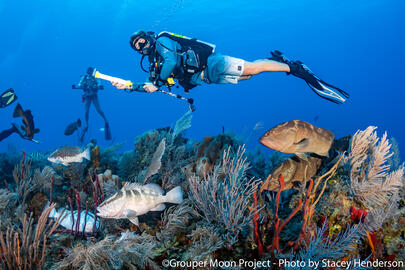Ever wondered how you can turn your dives and snorkels into meaningful marine conservation? REEF’s Volunteer Fish Survey Project is an easy and fun way to get involved in citizen science! No specialized training or scientific background is required - just curiosity, a love for the ocean, and a desire to learn. What began in 1993 as a simple idea to collect data on fishes, similar to how birdwatchers do on land, has grown into a global effort that has resulted in the world's largest and longest-running marine life sightings database in the world.
At the end of this month, REEF staff and partners from collaborating institutions including Scripps Institution of Oceanography at UC San Diego and Oregon State University will be attending the annual scientific conference hosted by the Gulf and Caribbean Fisheries Institute (GCFI) in Cartagena, Colombia. This annual gathering brings together scientists, park managers, fishers, and conservation organizations to share the latest in research and initiatives.
Did you know that fish sing? Just like birds, they use sounds for courtship and other communication. These sounds can provide a useful tool to monitor large aggregations of fish that supplements other more field intensive monitoring approaches such as visual surveys. Exciting new research exploring this behavior was recently published from our team of scientists with the Grouper Moon Project.
On behalf of the REEF Staff and Board of Trustees, we extend a heartfelt thanks and big fishy appreciation to Janet Camp for serving as a REEF Trustee for over a decade. After becoming a REEF member in 2011, Janet joined the REEF Board in 2014. Having worked with nonprofits for over 40 years, Janet brought extensive finance, budgeting, and governance experience to the REEF Board. We are grateful for the heart and soul she gave to REEF as a Board member these past 11 years. Thankfully, this isn't goodbye!
Did you know that fish sing? Just like birds, they use sounds for courtship and other communication. This paper looks at best practices for using hydrophones and AI to monitor the choruses of aggregating grouper. The findings are a result of research conducted as part of the Grouper Moon Project, in collaboration with our partners at the Cayman Islands Department of Environment, Oregon State University, and NOAA.
Last month, longtime REEF scientific advisor and Professor at Scripps Institution of Oceanography, Dr. Brice Semmens, participated in an important fisheries science meeting in Florida to help shape how Hogfish populations are assessed and managed in the Southeast U.S. This meeting was part of the SEDAR (Southeast Data, Assessment, and Review) process, a formal scientific review used by government agencies to assess the health of fish populations and determine sustainable catch limits.
Last week, REEF Co-Executive Director Dr. Christy Pattengill-Semmens joined hundreds of experts, educators, and community leaders in Oregon for the 2025 Conference for Advancing the Participatory Sciences. This annual event brings together people from around the world who are passionate about involving the public in scientific research.
The REEF Volunteer Fish Survey Project is widely regarded as one of the most impactful ocean citizen science programs. Since 1993, almost 18,000 REEF volunteers have generated one of the largest marine life databases in the world. What makes it such a success? Since the beginning, the data have been made available to everyone. Anyone can query the database and generate summary reports on the REEF website.
This year's Grouper Moon Project field season contained some unexpected surprises and raised a few questions, including "where are the fish?" Nassau Grouper normally spawn around the first winter full moon, when water temperatures drop. This is typically in late January or early February, but when the full moon falls in the middle of the months, this creates a “split moon” effect, where spawning often occurs in both months.
The Grouper Moon Project is a conservation science partnership between REEF and the Cayman Islands Department of Environment (DoE), with scientists from Scripps Institution of Oceanography at UC San Diego and Oregon State University. The project is aimed at studying Nassau Grouper, Epinephelus striatus, a keystone species on Caribbean coral reefs. Since 2002, our team has studied the Nassau Grouper spawning aggregations in the Cayman Islands, which hosts some of the largest and last known gatherings of this endangered fish.

